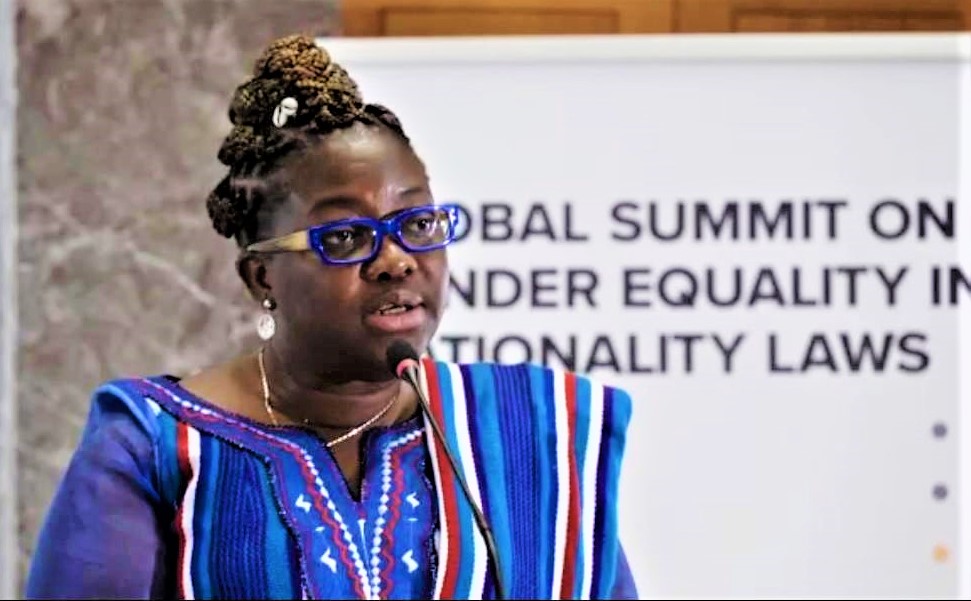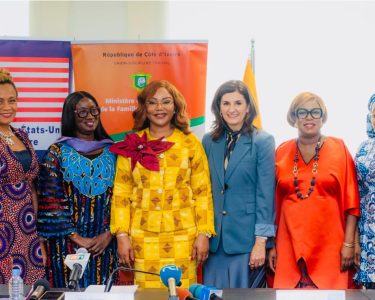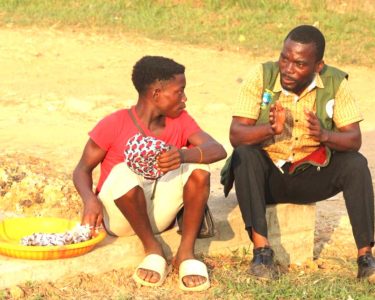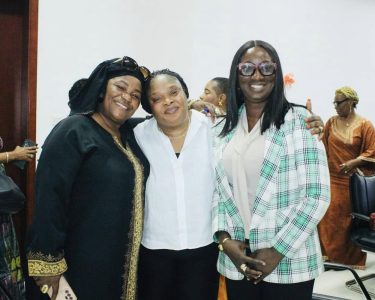Gender Minister, Hon. Williametta E. Saydee-Tarr, has highlighted Liberia’s progress in formulating legal instruments that address notable reform which now confers to women.
Minister Saydee-Tarr made Liberia’s case when she served as Guest Speaker at the consortium of the Global Campaign for Equal Nationality Rights where she deliberated on Liberia’s notable reform under the regime of President George Manneh Weah, which now confers to women the same rights as men to confer nationality to children and spouses.
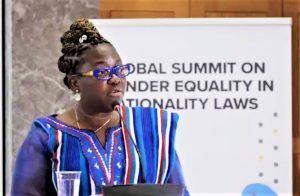 The gathering is being organized by the Global Campaign for Equal Nationality Rights, UNHCR, UNICEF, and UN Women as well as the Women’s Refugee Commission in Geneva, Switzerland.
The gathering is being organized by the Global Campaign for Equal Nationality Rights, UNHCR, UNICEF, and UN Women as well as the Women’s Refugee Commission in Geneva, Switzerland.
At the same time, the Gender Boss emphasized that Liberia will continue to strive to uphold the tenets and principles of human rights treaties and agreements all geared towards achieving gender equality.
“We remain committed to ensuring equal nationality rights for women and men to acquire, change, retain, and transmit their nationality, within the context of the recommendations of the Human Rights Council’s Universal Periodic Review, as well as the Convention on the Elimination of Discrimination against Women (CEDAW) and the UNHCR’s #IBelong Campaign to End Statelessness by 2024,” the Minister lamented.
The Gender Boss lauded the National Legislature for the passage of the law, and also, appreciated the United Nations, particularly the UNHCR, UNICEF, and UN Women for their enormous support to Liberia over the years as the country aspires to achieve gender equality and uphold children’s rights and well-being within the context of sustainable development, and to end statelessness.
The ongoing summit is intended to heighten attention on the costs of gender discrimination in nationality laws and expedite action to achieve gender-equal rights across the globe, thereby advancing state commitments and global goals pertaining to gender equality, children’s rights and wellbeing, sustainable development, and ending statelessness.
The summit is being attended by representatives of states, intergovernmental organizations, civil society groups, and UN agencies sharing on why equal nationality rights are essential to global goals.
In her presentation, the Gender Boss further indicated how it was not an easy task in accomplishing the reforms in Liberia’s nationality law.
Minister Saydee-Tarr said: “We would like to thank and appreciate the President, His Excellency Dr. George Manneh Weah for signing into Law on July 22, 2022, Liberia’s new nationality law. The law, which is titled “An Act to Amend and/or Nullify Certain Provisions of the Aliens and Nationality Law Relating to Citizenship and Restoring the Citizenship Rights Lost as a Consequence of those Provisions” commonly referred to as the Aliens and Nationalities Law, has now legally removed the gender discrimination in Liberia’s nationality law.”
“Because of the President’s political will and drive for achieving gender equality as a HeForShe Champion, we were able to remove this archaic stereotype against women relative to conferring nationality on their children born outside of the Republic of Liberia,” she added.
“Under the leadership of His Excellency, Dr. George Manneh Weah, we have been able to address gender discrimination in our nationality law, with an unwavering focus and commitment towards achieving gender equality, eradicating the risks of statelessness, and the realization of the Sustainable Development Goals.”
Gender Minister Saydee-Tarr further clarified that prior to the passage of the law by the National Legislature and the subsequent signing into law by President George Manneh Weah, several provisions, including, Part III, Chapter 20, 21, and 22 of Title 4 of the Liberian Code of Laws Revised also known as the “1973 Aliens and Nationality Law,” clearly violated the rights of Liberian women and children.
The Gender Minister also disclosed that the law discriminated Liberian citizenship rights between a person born of Liberian parents, (be it the father and/or the mother), on Liberian soil on the one hand, and a person born of Liberian parents outside of Liberia on the other hand.
“For instance, “Chapter 20, Section 20.1 (b)” provided that for a person to become a citizen of Liberia at birth, consideration was ONLY GIVEN to “a person born outside Liberia whose father (i) was born a citizen of Liberia; (ii) was a citizen of Liberia at the time of the birth of such child, and (iii) had resided in Liberia prior to the birth of such child”. This provision in the previous law did not provide for a person born outside of Liberia to obtain citizenship through his/her “MOTHER”. This was discriminatory!”
Minister Saydee-Tarr insisted that the old law did not uphold women and men’s equal rights to confer nationality on children and their spouses and provide far-reaching negative consequences on all aspects of family life.


